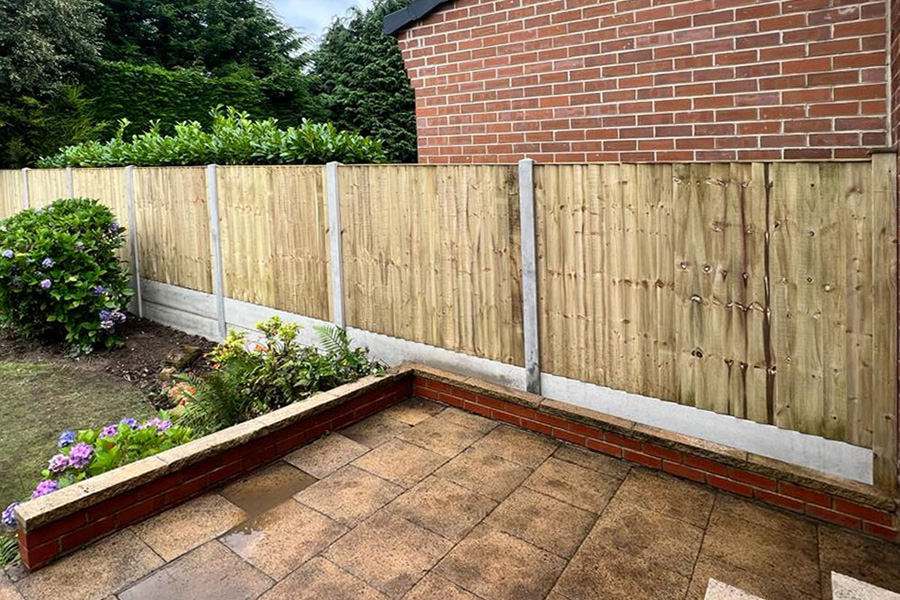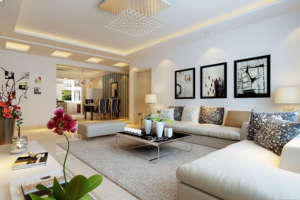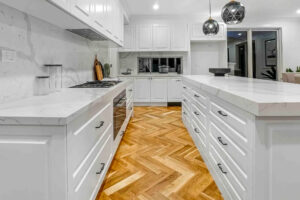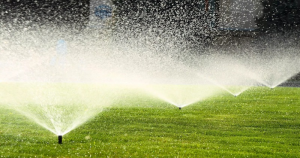
When selecting the best fencing option for your commercial property, there are several factors you need to consider. Not only is the right fence critical for security and privacy, but it also affects aesthetics and compliance with regulations. Whether you’re looking to protect your office, warehouse, or retail property, choosing the right fence can impact both the functionality and image of your business. In this guide, we’ll explore the key considerations for selecting a commercial fence and why choosing the right contractor, such as those providing fencing in Leeds, is essential to achieving the best results.
Understanding the Purpose of Your Fence
The first step in choosing the right fence for your commercial property is understanding your primary goals. Are you prioritising security, privacy, or aesthetics? Perhaps you need a combination of all three.
Security:
If protecting your premises from trespassers or theft is your primary concern, security fencing like palisade fencing or welded mesh fencing is likely your best bet. Security fences often include features like anti-climb measures, additional height, and reinforced materials. Many businesses in high-risk areas choose Leeds fencing solutions that offer enhanced security features, ensuring peace of mind.
Privacy:
Some commercial properties need fencing that shields operations from public view, such as car parks, industrial sites, or places storing valuable equipment. For properties like these, solid-panel fencing or close-board fencing can provide both security and privacy. Solid fences block visibility, reducing the risk of opportunistic theft while keeping operations private.
Aesthetics:
Your fence is one of the first things clients or customers see when they arrive at your property, so it’s essential to consider how it reflects your business. Ornamental fencing, timber fencing, or a custom-designed fencing Leeds solution may be more suitable if you’re looking for something that complements the surrounding architecture and creates a positive first impression.
Material Choices for Commercial Fencing
Once you’ve identified the purpose of your fence, the next step is choosing the right material. The material of your fence will impact its durability, security, and overall appearance.
Metal Fencing:
Metal is the most popular choice for commercial fencing due to its strength, security, and durability. Options such as steel or aluminium can be powder-coated to resist corrosion, providing a long-lasting solution. Palisade fencing is particularly favoured for industrial properties because it’s difficult to penetrate and can be installed with anti-climb spikes. Meanwhile, mesh-panel fencing is another sturdy option often used for schools and public buildings.
Wooden Fencing:
If aesthetics are as important as security, wooden fences offer an attractive solution. Wooden fences provide a warm, natural look that complements many building styles. They can be treated to resist weathering and decay, ensuring longevity. Close-board fencing and timber-panel fencing are two types often used for their ability to offer both privacy and security. However, wooden fences require regular maintenance to preserve their appearance and structural integrity, especially in areas with harsh weather conditions.
Composite Fencing:
For those seeking a low-maintenance option, composite fencing may be the answer. Made from a blend of wood fibres and plastic, composite fences are designed to resist weather damage and are available in various styles. While they tend to be more expensive upfront, they require less maintenance than traditional wooden fences, making them a cost-effective choice in the long term.
Welded Wire Fencing:
If you’re looking to secure a large perimeter without sacrificing visibility, welded wire fencing offers a great solution. It’s often used for industrial properties, parks, and public spaces because of its affordability and durability. Wire fencing allows clear sightlines, ensuring good surveillance while keeping intruders at bay.
Legal Considerations
Before installing a fence, you must ensure it complies with local regulations and planning permissions. Failing to do so can result in fines and costly modifications.
Planning Permission:
In the UK, planning permission is generally required if the fence exceeds two metres in height, or if the property is located near a highway. Some areas may also have specific restrictions on the type of fencing used, particularly if the property is located within a conservation area.
Health and Safety Requirements:
If your commercial property is open to the public, or if it employs staff, the fencing must meet health and safety standards. This is particularly important for properties such as schools or care homes, where the fencing must be designed to prevent accidents or injuries.
Environmental Regulations:
Certain fencing materials, such as treated wood, may have environmental impacts that need to be considered. If your company aims to adopt eco-friendly practices, opting for sustainable materials like FSC-certified wood or recycled composites can help you meet green standards.
Matching Your Fence to Your Business Needs
Each type of business requires a specific kind of fence. Here’s a breakdown of how different industries can benefit from various fencing solutions:
Retail Properties:
Retail spaces often need a balance between aesthetics and security. Decorative fences that complement the store’s exterior while offering robust protection are ideal. Ornamental metal fencing or well-maintained wooden fences work well for this purpose.
Industrial Sites:
For factories, warehouses, and logistics centres, security is the primary concern. Palisade fencing, high-security mesh fencing, or barbed wire fencing are common choices. These offer robust protection and can be fitted with additional security features like electric gates and CCTV cameras.
Office Buildings:
Fences around office spaces often prioritise privacy and curb appeal. Composite or wooden fencing provides an elegant appearance while offering the privacy needed to keep employee areas or private car parks secure.
Schools and Recreational Areas:
In environments like schools or parks, safety is paramount. Welded mesh-panel fencing is often used because it provides visibility while being tough to breach. Schools typically opt for colourful designs to create a welcoming atmosphere while maintaining security. Click here for more information.
Maintenance Considerations
Once your fence is installed, regular maintenance is essential to ensure it lasts as long as possible. Here are a few maintenance tips for different types of fencing:
Metal Fences:
While metal fencing is generally low-maintenance, it can be susceptible to rust over time. Regularly inspect your fence for signs of corrosion and apply rust-preventative treatments as needed. Additionally, check for loose or damaged panels and repair them promptly to maintain security.
Wooden Fences:
Wooden fences require more care, especially in damp or humid climates. Regularly treating the wood with preservative can protect it from rot, and it’s essential to keep an eye out for insect damage or signs of warping. Repainting or re-staining every few years can also help prolong the life of the fence.
Composite Fences:
One of the major advantages of composite fencing is its low-maintenance nature. However, it’s still important to clean your fence occasionally to remove dirt and debris, especially in high-traffic areas. Simply washing with water and mild detergent will keep it looking new.
Wire Fences:
Regular checks are needed to ensure the fencing has not been bent or damaged. This type of fence is particularly vulnerable to accidental damage from vehicles or machinery, so it’s crucial to address any issues immediately to maintain its integrity.
Why Choose Professional Installation?
Installing a commercial fence is a significant investment, so it’s essential to get it right the first time. By hiring a professional contractor experienced in fencing Leeds, you’ll benefit from expert advice, proper installation techniques, and access to high-quality materials. Professional installers also ensure that the fence complies with local building regulations and industry standards.
A local Leeds fencing contractor will be familiar with the regional climate and how it impacts materials, which helps in recommending the most suitable options for your property. Additionally, professionals provide warranties and aftercare services, ensuring that any issues that arise post-installation are addressed promptly and efficiently.
Conclusion
Choosing the right fence for your commercial property involves a careful balance of security, aesthetics, and compliance. By understanding your specific needs and matching them with the appropriate materials and design, you can enhance the safety and appearance of your business premises. For a high-quality solution, always opt for a trusted fencing Leeds contractor who can guide you through the selection process and ensure professional installation. With the right fence, your property will be secure, attractive, and compliant for years to come.





